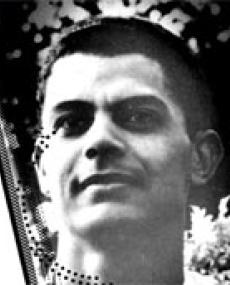
Basil February was born in District Six in 1944.The son of clerk and a midwife. His family moved around several times, living in places like Elsies River, Saldanha Bay and Stompeus Bay before eventually settling back in District six. As a result, February did his primary school education at St Andrews primary school in Saldanha Bay. When his family moved back to District Six, he went to study at Trafalgar High School where he did his high school education. After high school, he initially wanted to study law, however, when the then Minister of Education Balthazaar Johannes Voster refused his application, he had no option but to enrol at the University of Cape Town Medical schoolin 1961. At university, February soon got involved in politics and had to drop out of medical school.
He joined the South African Coloured People’s Organisation (SACPO) in 1963 and uMkhonto we Sizwe (MK) in 1964. It was around this time that February met fellow comrade James April. He and April became very vocal ad radical about their political activities; they sprayed graffiti in protest against the apartheid government. Their activities soon landed February in prison twice under the 90 day detention act.Under the 90 day detention act, a police special unit called the special branch had the authority to arrest any citizen on suspicion that the citizen could be involved in any act against the government. They could then be interrogated and detained for a period of ninety days, during which they are barred from any communication with the outside world.
February and April left the country for military training in 1964. He left for Botswana and took on the name Paul Peterson (his father’s name and his mother’s maiden name respectively). Not wanting to risk his plans being exposed, he left without letting neither family nor his friends know or even bidding them goodbye.Abroad, February soon became an asset to MK. He put his intellectual and writing skills to good use by contributing several articles to the MK Journal Dawn. On completion of his training, it was decided that February should come back to South Africa to head a guerrilla unit. He was to re-enter the country through Rhodesia (now Zimbabwe).
However, as February and his guerrillas were in route to South Africa in 1967, they encountered an unexpected roadblock in Rhodesia. It is reported that February put up a brave fight, and in the process risked his life for his fellow comrade by helping them escape while he stayed behind. It is not clear what exactly transpired in the roadblock but it is reported that a pursuit ensued. February managed to evade the police and ended up in a farm in fig tree near Bulawayo.There are many different versions to the story of how February was killed. One version claims that he was found hiding out in the farm in Figtree and was shot by police when he gave himself up in order to avoid putting the farmer and his family at risk. Another version claims that February was killed by Rhodesian security forces after a day long battle involving the air force. February was the first coloured MK cadre to lose his life in the struggle for liberation. He and April were the first coloured MK guerrillas.He was a brother of emigre writer Vernon February.Astudent hostel at the University of the Western Cape is named in his honor.